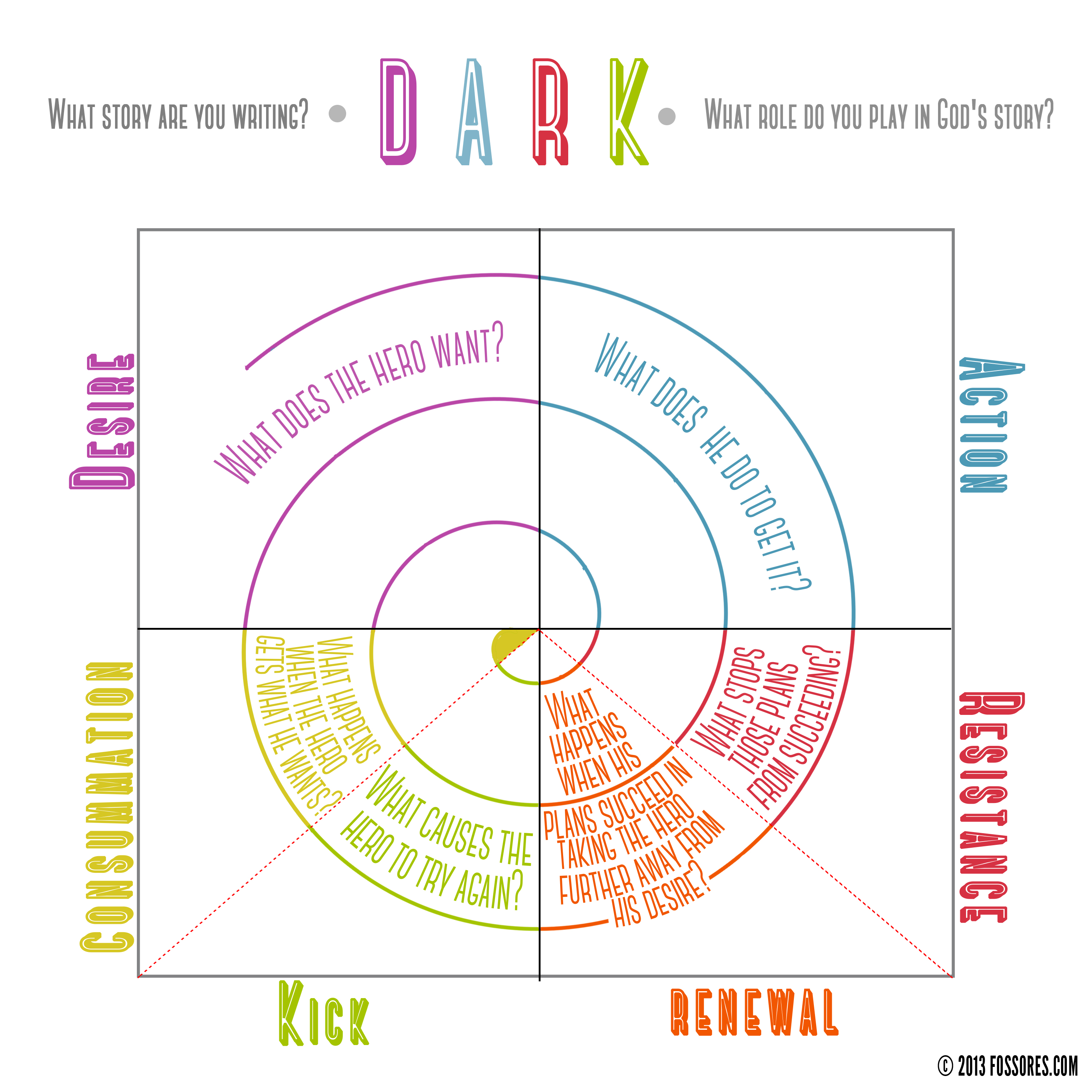Everyone needs to know how to tell a good story. Stories are the heft of good friendship, good education, and good sermons. “Thou shalt not” is always trickier to remember than “once upon a time.”
In every good story the hero wants something. To get what he wants the hero takes action. But that action doesn’t always work out in the way the hero intends. The hero will either face resistance or reversal. Resistance can be a discovery that the hero’s desire is more difficult to obtain that he first surmised, but more frequently resistance takes the form of an antagonist who will do everything in his considerable power to stop the hero from getting what he wants. A reversal occurs when a hero takes action and achieves the exact opposite of what he wants, thereby putting him further away from his goal rather than bringing him one step closer to it. In the end the hero’s desire will either compound, thereby kicking him into another round of action, or be consummated, thereby concluding the story successfully.
The essential elements of a good story, then, are: desire, action, resistance, and the kick (though this can also be rendered as: desire, action, reversal, and consummation). Each of these components is essential in good storytelling.
If there is no desire, we don’t have a story but rather a spasm during which our hero does many things that ultimately have no significance. If there is no action, then we don’t have a story but rather a sonnet comprised of an overly-emotional and laborious description of someone’s feelings. If there is no resistance, then we don’t have a story but rather a statement about how someone else’s plan worked flawlessly and thus bears little resemblance to our own lives.
If there is no kick, that is because the story has ended. However, the story cannot simply fizzle out. It must end via consummation—the fulfillment of the hero’s desire in a satisfying, meaningful, conclusion.
We must remember St. Augustine’s admonition to “love God and do what you want”, because desire is the compass of vocation. The most important thing you must learn about yourself is what you want.
Sometimes we also have a “shadow desire”—a desire contrary to our conscious desire. If we are not careful this shadow desire will subconsciously work to subvert the action we take in pursuit of our conscious desire, causing frustration, misery and disappointment.
What story are you writing for yourself?
Inevitably, you will face resistance. Tragically, you may even suffer a great reversal. But the power of your story rests upon the strength of your desire. How badly do you want what you want?
Still more important is the discovery of what God wants for you. What part do you play in his story of healing and reconciliation?
The story of God is the story in which all other stories find their origin, meaning, and fulfillment. God wants to reconcile the world to himself, so he enters the world. Yet the world rejects him. Ironically it is through that very rejection that God executes his plan of salvation, gathering the enormity of human ignorance, frailty, and harm onto the cross and onto himself, ultimately expelling it from the world forever. We have now been freed from the coercive power of sin and God wants us to live like him, as his shadows and stewards. Yet our desires have not been wholly reformed and, at times, they betray us. God promises a day is coming soon when we will be fully and finally consummated with him and free forever.
fossores
Related posts
Categories
Category Cloud
Tag Cloud
Recent Posts
- Victors and Victims November 6, 2018
- 3 Hacks for Happiness October 29, 2018
- Hope Against Death September 20, 2018
- The Shape Of The Cross September 19, 2018


